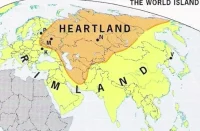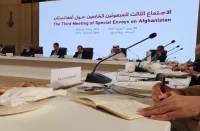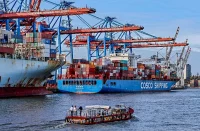Nikita MENDKOVICH (Russia)
The International Conference on Afghanistan held on July 20 was to take stock of the first half of 2010. It addressed the successes and failures in bringing stability to the country, and also served as a platform for discussing solutions to current problems.
The main theme of the last six months was Kabul’s attempts to negotiate with individual warlords. The original idea was to negotiate with the Taliban as a whole; conditions for compromise were even identified—ministerial portfolios were to be given to some Taliban, and the Taliban were to renounce their ties with al-Qaeda. However, considering that the movement lacks a unified leadership, the plan was a pie in the sky idea, or at least a step too far.
Negotiations with members of the so-called Quetta Shura led by Mullah Omar’s deputy, Mullah Abdul Ghani Baradar, were more realistic; but his arrest and that of several other warlords during the winter caused negotiations to break down. According to Afghan news media some of those arrested were released by Pakistan in late June, but whether that affected negotiations is unknown.
All we really know right now is that Gulbuddin Hekmatyar’s group was successfully split off from the armed opposition. He had joined the opposition after NATO forces invaded Afghanistan. There have been recent reports about his clashes with Taliban warlords, and after he attended the talks in the Maldives, the Taliban virtually declared him a traitor.
Kabul is apparently ready to make greater compromises with members of the opposition. In particular, there is renewed talk about possibly including some moderate Taliban in the government, and many people in Kabul link the latest string of resignations in the security agencies with the intent to do that. 1 Hamid Karzai’s initiative to remove names of Taliban leaders under UN sanctions from the “black list” points to that.
It is unlikely to happen without “material incentives” for the regime’s enemies; the International Reintegration Fund established after the January conference in London is intended for that purpose. The negotiations may result in some former warlords being involved in managing its assets, Hekmatyar among them.
The Western countries that participate will expect a report from Kabul on the political steps taken to split the armed opposition, and they will be regarded very cautiously in other countries. Recall that according to some sources, the United States blocked the previous attempt to form a coalition government with the moderate wing of the Taliban. Washington apparently will only be happy with a compromise that allows it to save face by demonstrating at least a partial victory over al-Qaeda and the Taliban.
According to statements by representatives of some member countries, the European Union is more receptive to the idea of negotiations; however, it is unlikely to give them the go-ahead before receiving details about them from Kabul. According to recent reports, the EU has said that it would delay major financial aid for Afghanistan until the fall, and it will seek clarification from Afghan representatives at the upcoming conference about how the funds will be used.
Apparently, despite the win in German elections by candidates who support continuing the war until victory is achieved, defeatist attitudes as represented by the Netherlands and a number of French and German opposition forces still have to be taken into account. It looks like European politicians want to end the Afghan war at any cost before its popularity drops to a critical minimum. However, it is also to their interest that decorum be maintained and that the most objectionable opposition warlords not participate in negotiations with Kabul.
Other regional players take a more rigid and uncompromising stance. Russia in particular has consistently opposed any compromise with extremists, largely due to the historically close ties between the Taliban and the Caucasian underground.
Russia previously held bilateral consultations with Afghan officials. Russia’s ambassador to Afghanistan subsequently expressed readiness to expand arms deliveries to the country. This apparently is supposed to encourage a military solution to the problem of the irreconcilable opposition. That position may be presented at the conference as a unified front by Russia and the Central Asian republics, including Kazakhstan.
In addition to its current pragmatic interests, Russia is guided by its historical experience, which shows that extremist movements can be defeated without making serious compromises with their leaders. Examples include the successful dismantling of the insurgency in the Baltic states and Western Ukraine during 1940-1950 and the recent stabilization of the situation in the Chechen Republic.
The position of the “Eastern players” is less clear. Pakistan, which is perceived as the main political sponsor of the Afghan Taliban, obviously not without US involvement, has made some compromises with Kabul. Pakistan is willing to mediate another round of talks between Karzai and the warlords and help them reach a truce. However, an important objective for Pakistan is to retain its influence over the situation in Afghanistan even after former activists from the armed opposition join the national political system That being said, Pakistan may support Kabul’s negotiation initiatives at the upcoming conference, and it may also try to obtain the formal support of Afghan officials and Western participants for previous guarantees.
China has not yet clarified its position. In theory, a stronger Taliban and radical Islamic trends in Kabul are not in China’s interests because there is a real danger that extremism will penetrate the Peoples Republic across the Afghan-Chinese border.
Iran’s position also remains unclear. Moreover, the Iranian representatives have already announced their intention of holding a separate meeting later with Tajikistan and Afghanistan in order to develop a joint position on the region’s problems; that suggests they may try to revise the results of the July conference, whatever they may be.
The conference could become a venue for lively discussions about the drug problem, an issue on which many participants hold opposing positions. It is now clear that the success of the 2007-2009 campaign to end opium poppy cultivation has reached its peak of effectiveness. In 2006-2007, the government and coalition forces managed to eradicate “natural” opium crops in the northern, eastern and central regions of the country. Although the campaign was accompanied by fighting and a total of less than 35 thousand hectares were eradicated, it left a strong impression on farmers in the areas where it was carried out. In 2008, opium crops decreased by 18% for the first time in many years, and the rate of decrease continued through 2009. 2 But it has now become clear that crop eradication has topped out; moreover, doubts have arisen that past successes could continue into 2010.
The problem is that massive eradication of crops is impossible in the southern provinces, which produce 80% of Afghan opium. Those areas are controlled by the Taliban, and the drug problem cannot be solved there without solving the “Taliban problem.” Experts have repeatedly proposed eradicating opium poppy crops remotely using herbicides or fungal spores. That approach either requires new technical solutions or it affects a broad spectrum of crops, including legal ones.
We should expect Afghanistan and the Western countries to advocate a conservative strategy for combating drugs, and the regional states that suffer from drug trafficking, probably including Kazakhstan, Russia and Iran, will argue for tougher measures against illegal opiate producers and opium farmers.
All of this leads us to believe that old but no less urgent issues will be raised again and again during the conference, and it is unlikely that a final compromise will be reached.
Nikita Mendkovich is a historian, economist and expert at the Center for the Study of Modern Afghanistan (Moscow). The article was written on the eve of Kabul Conference and thus is subject to minor editorial corrections by the OR.
Source: New Eastern Outlook














Comments